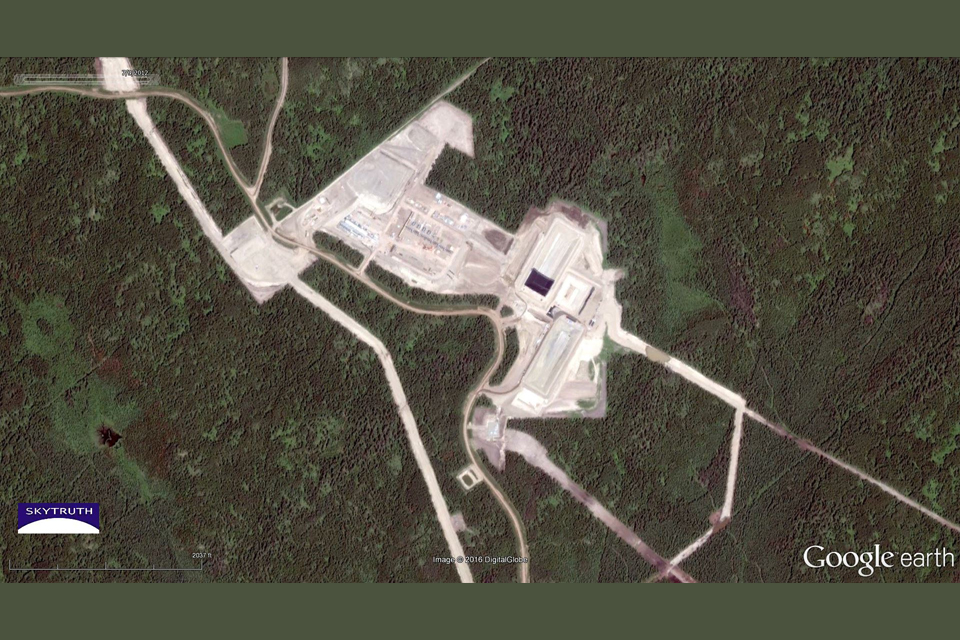Last year, more natural gas was produced in British Columbia than at any point in the past 10 years.
That may come as a surprise to some people who thought growth in B.C.’s natural gas industry hinged on the emergence of a liquified natural gas sector. It does not.
The reality is that even without a much-hyped LNG industry, natural gas production in B.C. increased 70 per cent over the past decade, with major customers, including Alberta’s tar sands industry, fuelling that growth.
And the situation is poised to intensify, with one major player in the industry predicting a doubling of natural gas production and a fivefold increase in the output of gas byproducts (including pentane, butane and condensate) within just two years’ time. Again, absent LNG.
The ecological, climate, and human health and safety costs associated with producing all that fossil fuel is generally very poorly appreciated by those of us living in the urban southwest corner of the province. But ask people living on the front lines about the consequences — First Nations, farming families and rural communities in the northeast region of B.C. — and a litany of problems is quickly listed off.
A troubling increase in earthquakes. Contaminated groundwater and surface water sources. A sprawling network of unauthorized dams. Rapidly escalating industrial water use and contamination. Massive fragmentation of Indigenous lands and lost opportunities to carry out traditional hunting and fishing activities. Troubling increases in methane emissions at gas wells and other natural gas industry facilities. Ongoing threats of sour gas leaks that can kill and maim.
The time is long overdue for a wide-ranging formal public inquiry into how natural gas is produced in British Columbia.
What changes are needed? Particularly when we know that every unit of increased gas production in B.C. requires the use of hydraulic fracturing or fracking — brute force technology that rams massive amounts of water below the earth’s surface to “liberate” gas.
Until recently the B.C. government, which heavily promoted LNG, was utterly dismissive of any suggestion fracking posed risks. But with a new minority government, the door may finally be opening for natural gas drilling and fracking to get the long overdue public scrutiny they deserve.
One thing that wasn’t talked about much during the spring election was the NDP’s 2017 campaign platform call for a review of fracking.
“Most of B.C.’s natural gas is produced using hydraulic fracturing, a process that has been used in northeastern B.C. for decades,” the platform read. “With the potential of a significant expansion of gas production in the years ahead, we will appoint a scientific panel to review the practice to ensure that gas is produced safely, and that our environment is protected. This will include assessment of impacts on water and, given recent minor earthquakes in the area, what role gas production has in seismic activity.”
The time is long overdue for a wide-ranging formal public inquiry into how natural gas is produced in British Columbia.
Given the known impacts associated with recent fracking operations in the province, the NDP’s commitment is a starting point. But to be meaningful and effective, that commitment must go well beyond simply appointing a scientific panel.
The reasons why are numerous. Here are just a few.
- In August 2015, the largest earthquake anywhere scientifically linked to a fracking operation occurred in northeast B.C. — a 4.6 magnitude tremor.
- BC Hydro is so concerned about its Peace River dams — among the most critical infrastructure in the province — that it has quietly succeeded in getting fracking-related activities banished from near those facilities.
- Water use at B.C. fracking operations is off the charts. In the rush for water, fracking companies built dozens of unlicensed dams across the northeast of the province to trap freshwater used in the fracking process while failing to notify those First Nations most directly impacted, let alone the general public.
- Methane is leaking into the atmosphere at numerous gas well sites. There’s every reason to believe that at numerous sites it has also contaminated groundwater sources.
Given such realities, a full public inquiry is the least British Columbians deserve. An inquiry where public meetings are held, where witnesses are called and testify under oath, where independent experts provide services as needed, and where a final public report is issued.
Such an inquiry should not be limited to scientific questions (in many cases the science is already in) but should focus squarely on the risks associated with fracking and what should be done about them, including taking a hard look at the adequacy of provincial regulatory oversight and enforcement and the compliance of fracking companies with existing laws and regulations.
It should also cast a wider net addressing important questions such as:
- Have natural gas companies and provincial regulators appropriately consulted with First Nations as required by law and the UN Declaration on the Rights of Indigenous Peoples?
- What is the true extent of public health and safety risks associated with fracking, including the risks posed by industry-induced earthquakes?
- Where are outright bans on fracking warranted and what other steps should be taken to comprehensively protect human health and safety?
- What are the environmental and water impacts?
- How much could accelerated gas drilling and fracking increase B.C.’s overall greenhouse gas emissions and what should be done to ensure that industry emissions move steadily down, not up?
- Does the BC Oil and Gas Commission adequately monitor the fracking industry, ensuring that it complies with all relevant laws? Is it transparent and does it keep the public fully informed?
- If current monitoring and enforcement actions are inadequate, what changes are necessary to ensure natural gas companies comply with all relevant laws and regulations?
There is a long history in B.C. of periodically subjecting management of the province’s forests to independent public scrutiny. To date, no such scrutiny has been focused on the province’s oil and gas sector.
Our new provincial government would provide a valuable public service in immediately rectifying that.
The Canadian Centre for Policy Alternatives is one of 17 organizations calling for a public inquiry into fracking in B.C.
You can add your voice to the call here. ![]()
Read more: Energy, BC Politics
















Tyee Commenting Guidelines
Comments that violate guidelines risk being deleted, and violations may result in a temporary or permanent user ban. Maintain the spirit of good conversation to stay in the discussion.
*Please note The Tyee is not a forum for spreading misinformation about COVID-19, denying its existence or minimizing its risk to public health.
Do:
Do not: